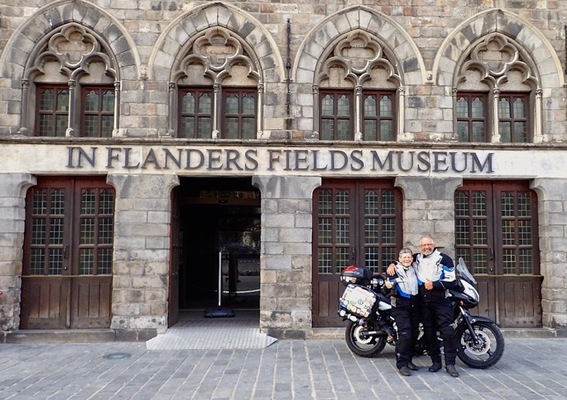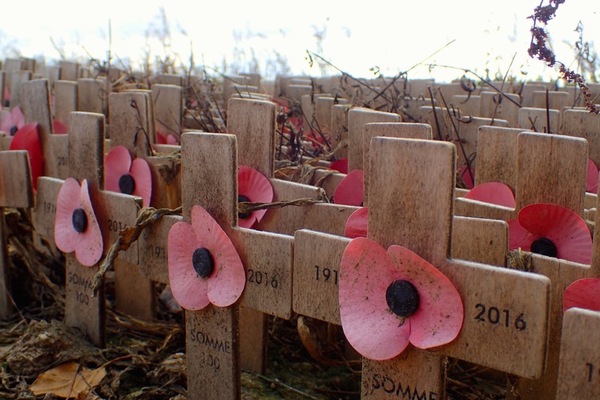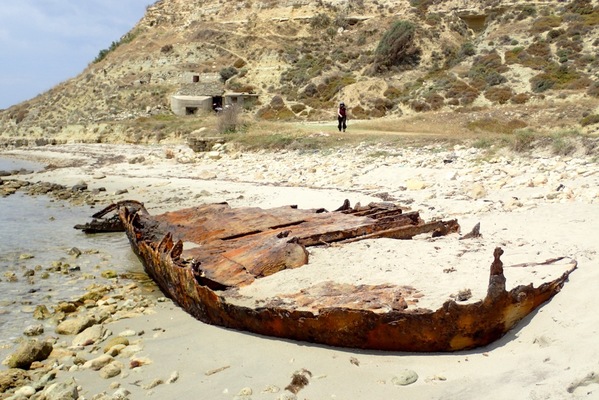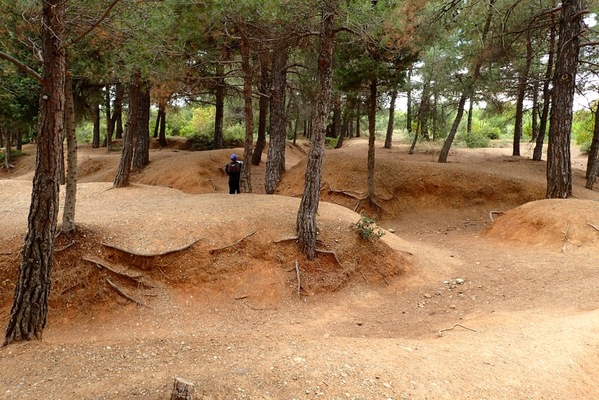
Pakenham resident Jo Spencer reflects on what Anzac Day means to her, and shares how a 2015 visit to Gallipoli with husband John, led to a greater appreciation of Australia’s servicemen and women.
Anzac Day has always been something we hold very dear, and makes us extraordinarily proud to be Australian.
My husband John and I had an amazing 19-month adventure in Europe, UK and Scandinavia, travelling on our 650 Suzuki Vstrom motorbike.
During that time we ‘lived the dream’ and were privileged to be able to visit many sites where Anzacs fought so bravely in both WWl and WWll.
Some we went to intentionally, some we found by chance; all were very special and left us feeling humbled, grateful and so very, very proud.
Our time in Gallipoli was very special. We spent several days riding around the Dardanelles and Gallipoli peninsulas, coming across only one small group of Australians and a few Turkish tourists.
It seems the current troubles in this part of the world have reduced visitor numbers. It was surreal riding around visiting many locations, some off the beaten track, which the motorbike allowed us to do.
Arriving at Anzac Cove with not a person or vehicle in sight gave us quiet time to reflect and try to imagine what it was like for a young Australian, so far from home, to be caught up in this tragedy.
Looking up at the cliffs was so very sobering. We could not begin to imagine the feelings of these young men as they faced such a daunting task, while under heavy gunfire. To see one’s mates falling all around was beyond our comprehension.
The Commonwealth War Grave cemeteries are beautifully and respectfully maintained. Some cemeteries have hundreds of graves, others but a few. Some small cemeteries in Belgium and France are in the middle of working farms. These soldiers being buried where they lay.
It had a profound affect seeing all the creme-coloured headstones as we wandered, looking for the Aussie rising sun symbol. Some had names, but too many simply said “An Australian soldier of the Great War … . Known unto God’.
It was heartbreaking to see so many, and we felt for the families and loved ones, whose sons never came home. Not knowing where they fell in a faraway foreign land, or being able to mark their grave was simply unimaginable for us.
It was so very sobering and sad, yet we were filled with pride. We felt privileged to be able to leave a small token of Australia on some graves, a little flag or koala, and we were not the only ones.
The words on the headstones at times so very poignant. One at Beach cemetery (known as hell spit) Gallipoli simply said ‘Well done Ted’. Another at the Somme for 23-year-old Sergeant PJ Ball (MM) seems so relevant today. It said “I fought and died in the Great War, to end all wars. Have I died in vain’.
Something that became very apparent to us was the respect the Turkish people have for our boys.
Ataturk made a moving tribute to the Anzacs killed at Gallipoli in 1934:
“Those heroes that shed their blood and lost their lives … You are now lying in the soil of a friendly country. Therefore rest in peace. There is no difference between the Johnnies and the Mehmets to us where they lie side by side here in this country of ours … You, the mothers who sent their sons from faraway countries, wipe away your tears; your sons are now lying in our bosom and are in peace. After having lost their lives on this land they have become our sons as well”.
We also visited Turkish cemeteries at Gallipoli, their losses too so very great.
In Belgium, we found that Aussies are welcomed with open arms, because of the sacrifices our soldiers made for them.
One incredibly moving moment was at Mennen Gate Memorial in Ypres, where the names of over 54,000 Commonwealth solders with no known graves are inscribed.
Every night at 7.30pm (rain, hail or shine) since 1927, the traffic is stopped and people gather to see the buglers of the Last Post Association (local men of the Ypres Fire Brigade) honour those who fought and died at the Salient (area around Ypres) by playing the Last Post. Wreaths are laid in memory and tribute to the fallen in silent respect, with thanks for their ultimate sacrifice.
John’s grandfather, Reg Holloway and his mates of the 3rd Pioneer Battalion were stationed in Ypres area. Reg came home, but sadly many did not.
His commander wrote a book in 1922 about the battalion’s history, which we read before leaving Australia.
Visiting many battlefields mentioned in the book helped us understand what our soldiers endured through this war. So it was indeed an honour and a privilege for John to be able to lay a wreath at Mennen Gate for them.
To our heroic and selfless Anzacs we say a silent prayer of heartfelt thanks for what they so valiantly and bravely gave up for us. Lest We Forget.










